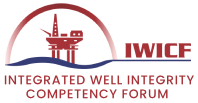Design Integrity
The Well Design must:
- Incorporate all safety considerations required throughout the campaign.
- Comply with Local Government Regulations, Safety and Well Integrity Policies.
- Satisfy all Operating Requirements for the well.
- Specify necessary equipment, devices and / or services with their sizes, specifications, models, manufacturers, operating conditions, limitations, etc for all planned well operations.
- Include a Well Barrier Management System for the Sequence of Planned Well Operations.
Technical Integrity
- The Well Plan must contain appropriate Operating Procedures for All Planned Well Operations.
- An Effective Well Operations Management System must be established in the Design and Preparation Stage.
- The Well Plan must adhere to International / Internal / Regional Policies for Safe Well Construction:
- a) Well Control Policy.
- b) Well Integrity Policy.
- c) Well Engineering Policy.
- d) QHSE Policy.
- Include a Well Barrier Surveillance Plan for the Sequence of Planned Well Operations.
Operational Integrity
- Real-time Well Monitoring.
- QAQC of Field Data.
- Effective Logistics Management during Operations.
- Periodic Well Barrier Surveillance.
- Compliance to Rig Site Safety Requirements (PTW, Stop Cards, PPE, Hot Works, etc).
- a) Daily Reports (DDRs, DMRs, DGRs, etc).
- b) End of Well Report,
- c) HSE Reports,
- d) Incident Report,
- e) Near-Miss Reports.
Structural Integrity
- Adequate Soil Testing at Offshore Jack Up Locations to be performed Ensure Rig Stability during Operations.
- Testing and Verification of DP Systems in Floaters.Although not a ‘Barrier’, DP failure may lead to loss of Well Integrity (Riser Damage, Drill Pipe Bucking, etc).
- Selection of Optimum Casing Weight, Grade and Connections for all sections of the well.
- Practical Cementing Design and Installation with appropriate additives for each section.
- Pile Driving / Jetting the Conductor to a verified point to refusal to avoid punch-through.
Organizational Integrity
- Competency Training to Spread Awareness on Well Integrity and Well Barrier Management beyond Well Control.
- Training on International / Regional Well Integrity Standards.
- Competency Development through Simulations and On-Site Training.
- A well-defined Management of Change (MoC) process to document and manage changes to a program.
- Rig Site Well Integrity Training:
- Identifying Primary and Secondary Well Barriers.
- Monitoring / Judging Well Barrier Conditions.
- Well Barrier Re-Establishment.
- Safety Drills.


